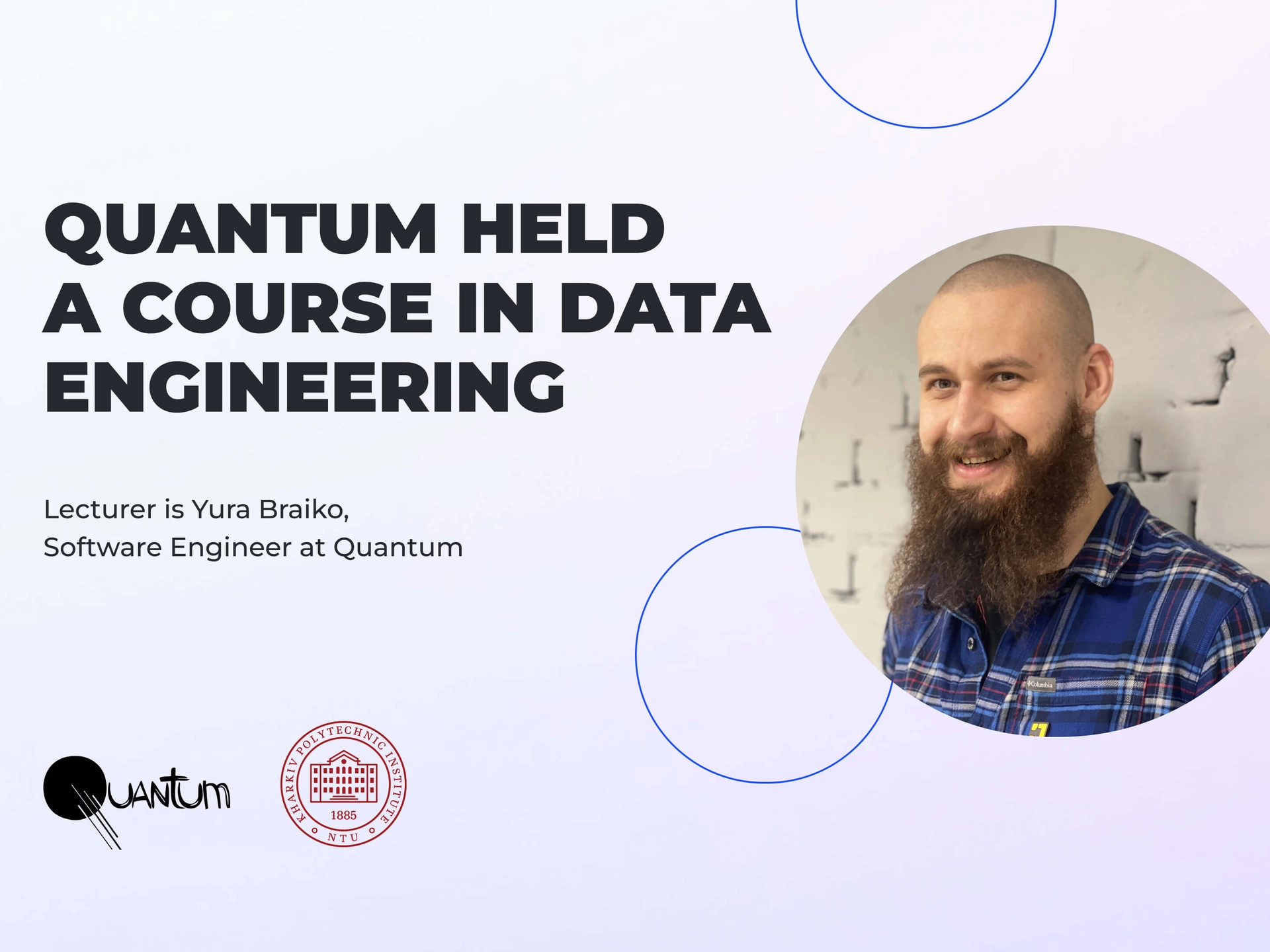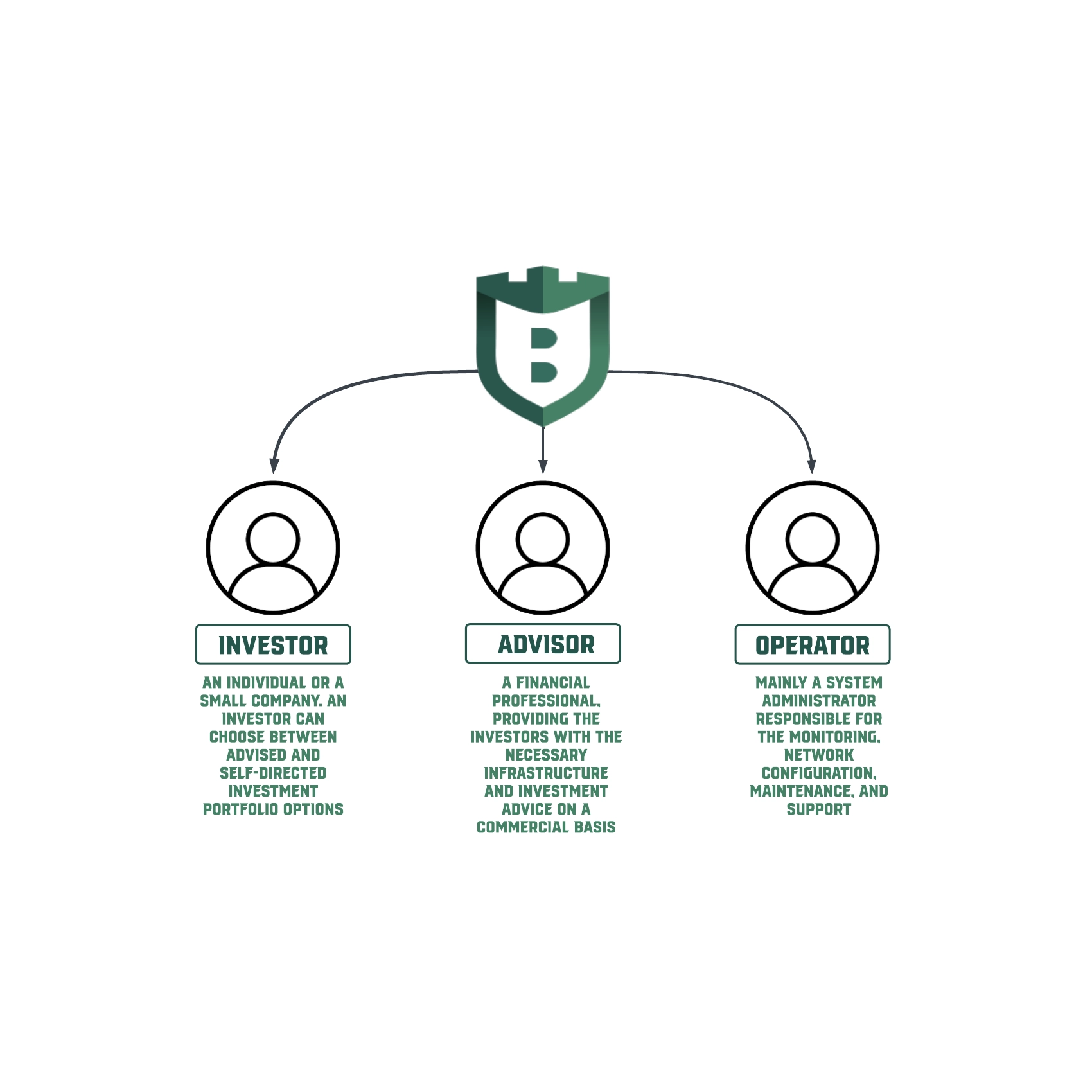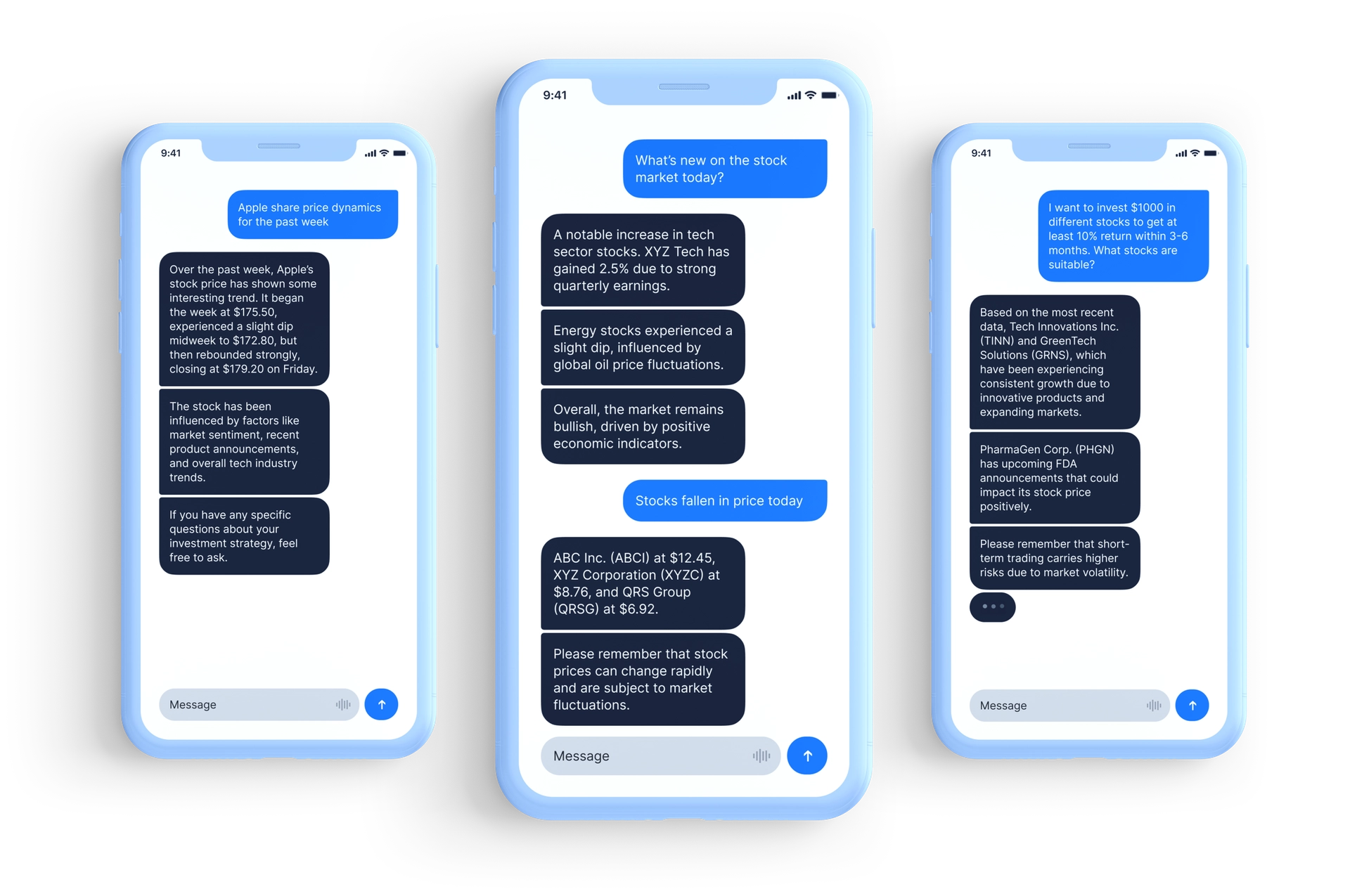Quantum will conduct a course on Data Engineering for students of NTU KhPI
It’s never too late to learn about the world of Data Engineering, and the course “Data Engineering Basics” at Quantum will give you all the necessary information.
This course will focus on the interaction between industry and classic academia. Specialists who process data in their everyday practice will share their approaches and tools that really work in the modern world of Big Data.
The main objective of the course is to provide general knowledge of building data-processing pipelines, with additional practical tasks to build integrated distributed systems.

Data Engineering course: study format
We divided the course into four parts:
1. Lectures
2. Practical lab tasks
3. Individual work
4. Final test
Course program
— Overview of the data processing pipeline
— Collection and storage of raw data
— Processing, cleaning, and storage of processed data
— Scaling tools for data processing systems
— Visualization and monitoring of data
Practical usefulness
During this course, we will not read another documentation or speak again about the top 10 popular tools.
— We will explain the basic principles of most data processing tasks.
— We will help you understand the mechanics of modern tools.
— We will show rules and practices not based on the technology stack.
— We will add practical tasks, which will be useful for novices and interesting for those who already work in this speciality.
— We will provide you with useful links to blogs and forums.
Must-have skills for students
Competence in the basics of the programming language or good knowledge of at least one programming language: Python / Java / R.
Nice-to-have skills for students
1. Theoretical skills of working with Docker
2. Jupyter notebook skills
3. Linux terminal skills
4. Theoretical knowledge of microservice architecture
Our lector
Our lecturer is Yura Braiko, Quantum engineer with years of experience. Yura is open to live communication, is eager to share the knowledge he acquired, and helps students not only with the course assignments but with any engineering task they encounter.
Our company
Quantum is an international IT company with niche expertise in Data Analytics. We offer ready-to-use solutions from talented engineers, both from Ukrainian R&D offices and locally at target markets. We work with software companies and start-ups in the USA, Israel, and Europe.





